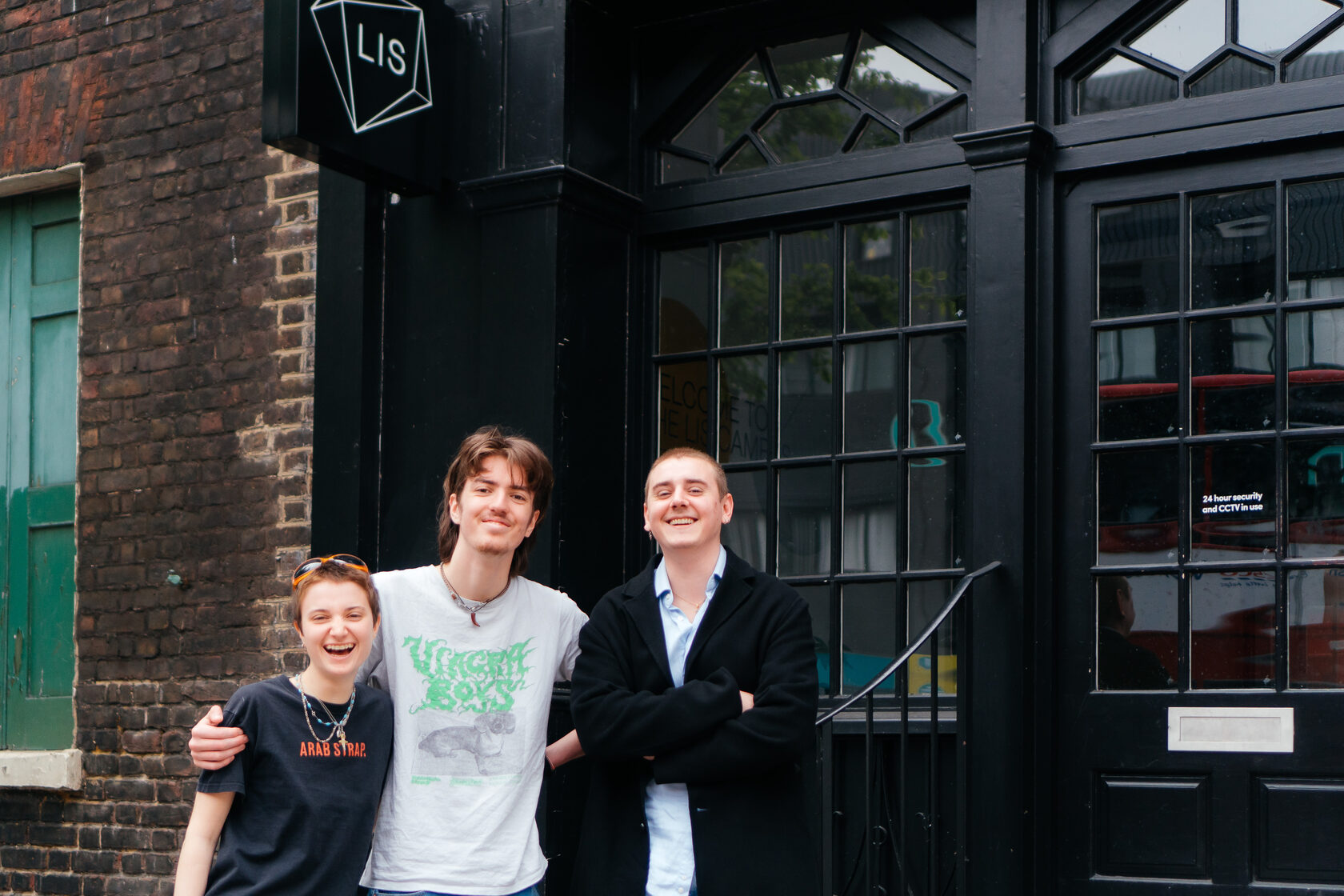Where is the pinpoint of meaning? Can we prompt civic engagement through gaming? How might Artificial Intelligence reveal the realities of history beyond textbooks? These are the questions not only being raised but tackled today at The London Interdisciplinary School (LIS). In authentic start-up fashion, this radically new university is disrupting the millennia-old institution of education, reassessing the role of schools in raising the thinkers and leaders of tomorrow. I have had the privilege to speak with the School’s Faculty to paint a holistic picture of the value of education in the 21st century and how the LIS is realising it practically.
"The reason that we have knowledge organised in the way we do is because of the physical requirement of libraries to host knowledge in a way that you can navigate. We've decided that we have to learn that way too so if you're going to do a degree you're going to learn a section of the corridor in a library … Increasingly that isn't the way the world works [and] it's not how young people learn." - Ed Fidoe, Founder of the LIS for Euronews.
The argument for interdisciplinarity
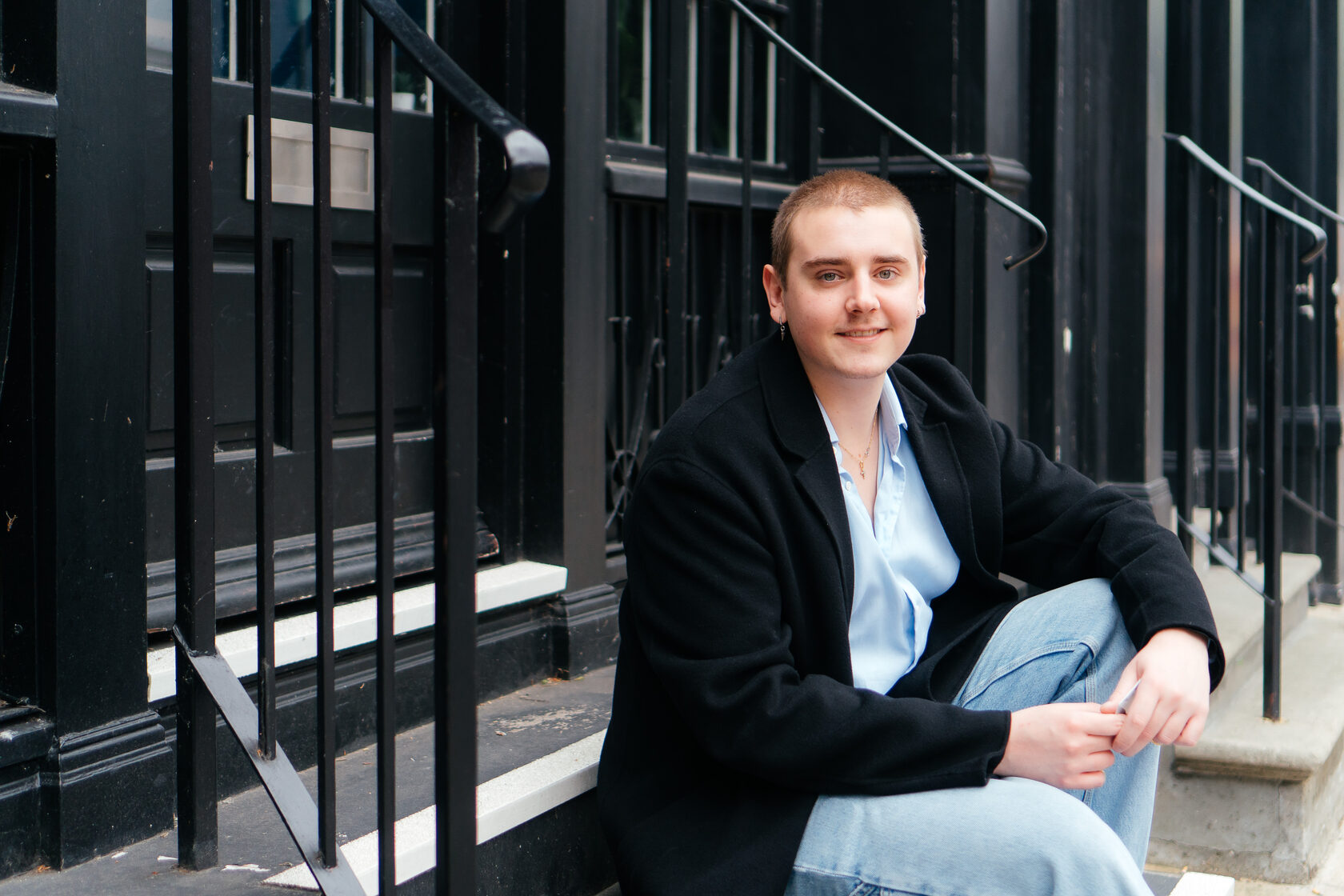
When I first visited the LIS, I was warmly welcomed by staff and students alike. We discussed everything from merging the education and entertainment industries to ensuring the relevancy of education to evolving societal norms. In the staff kitchen, I sat down with Carl Gombrich, the Dean at the LIS, to discuss the changing role of education in a rapidly changing world.
“It is hard to separate education from the rest of the culture in which it sits: education makes culture and culture makes education. In an age, therefore, in which - at least according to many observers - we see accelerated societal and cultural change, if formal education doesn't keep up with, let alone shape, that change it will be increasingly irrelevant.” - Carl Gombrich, Dean at the LIS.
How does interdisciplinarity ensure adaptability of education to shifting societal needs?
“Interdisciplinarity has long been associated with more progressive, not to say subversive educational philosophies. It contains within it the idea that academic subject boundaries are somewhat arbitrary and that disciplinary silos can become self-serving, and disciplines detached from the broader aims of education and remote from the needs of society. So there is a natural connection between interdisciplinarity and agility, or at least being able to respond to societal (as opposed to intra-disciplinary) needs.” - Carl Gombrich, Dean at the LIS.
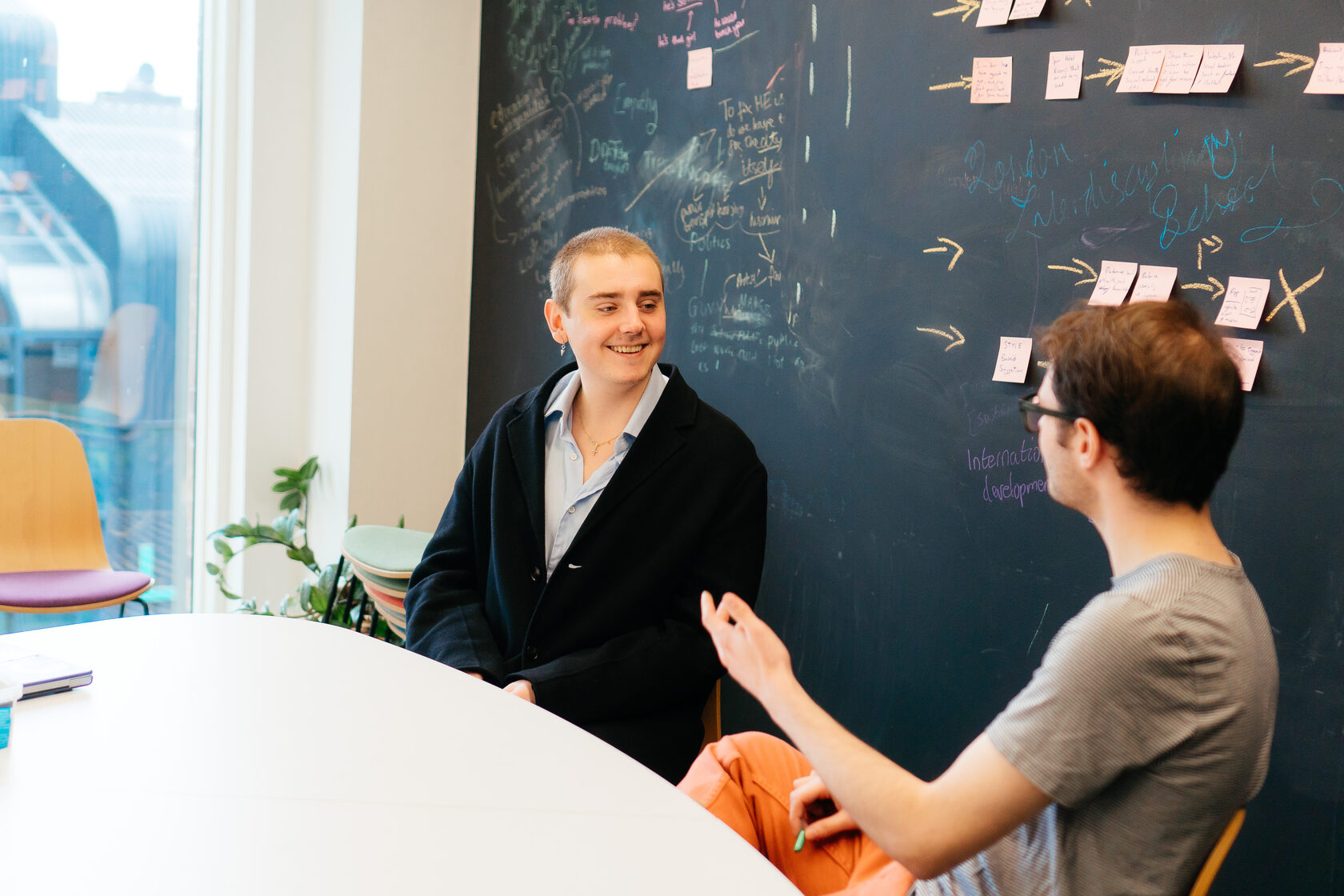
This agility is proving increasingly crucial as the interdependency of societal challenges grows. With technological advancements exponentially disrupting our business-as-usual, traditional education appears to be stagnating in its function to adapt to the transforming industry. The World Economic Forum already predicts a displacement of 14 million jobs in the next five years due to advancements in task automation, while traditional universities are increasingly restricting any use of AI in the classroom as it reassesses the validity and reliability of the knowledge they were built to deliver.
When I later attended the School’s Open Day, I asked James Carney how interdisciplinarity is more appropriate for the revolutionising world of work.
When I later attended the School’s Open Day, I asked James Carney how interdisciplinarity is more appropriate for the revolutionising world of work.
“The trajectory of technology has always been in the direction of the automation of predictable processes. This started with physical processes in the industrial revolution; now, we’ve moved on to cognitive processes. One consequence of this is that the labour market of the near future will be less reliant on the human acquisition of routinised or algorithmic knowledge, and more focused on the informed application of this kind of knowledge across the space of human problems (a space that has not, and never will be, routinised). Interdisciplinary education rewards this need by fostering a mindset that can engage with different forms of routine knowledge – after all, every academic discipline is to a certain degree, a form of routine knowledge except at the very frontiers. To this extent, interdisciplinary education is expressly appropriate to the changes that technology is accelerating.” - James Carney, MASc Programme Lead at the LIS.
What is the LIS doing differently?
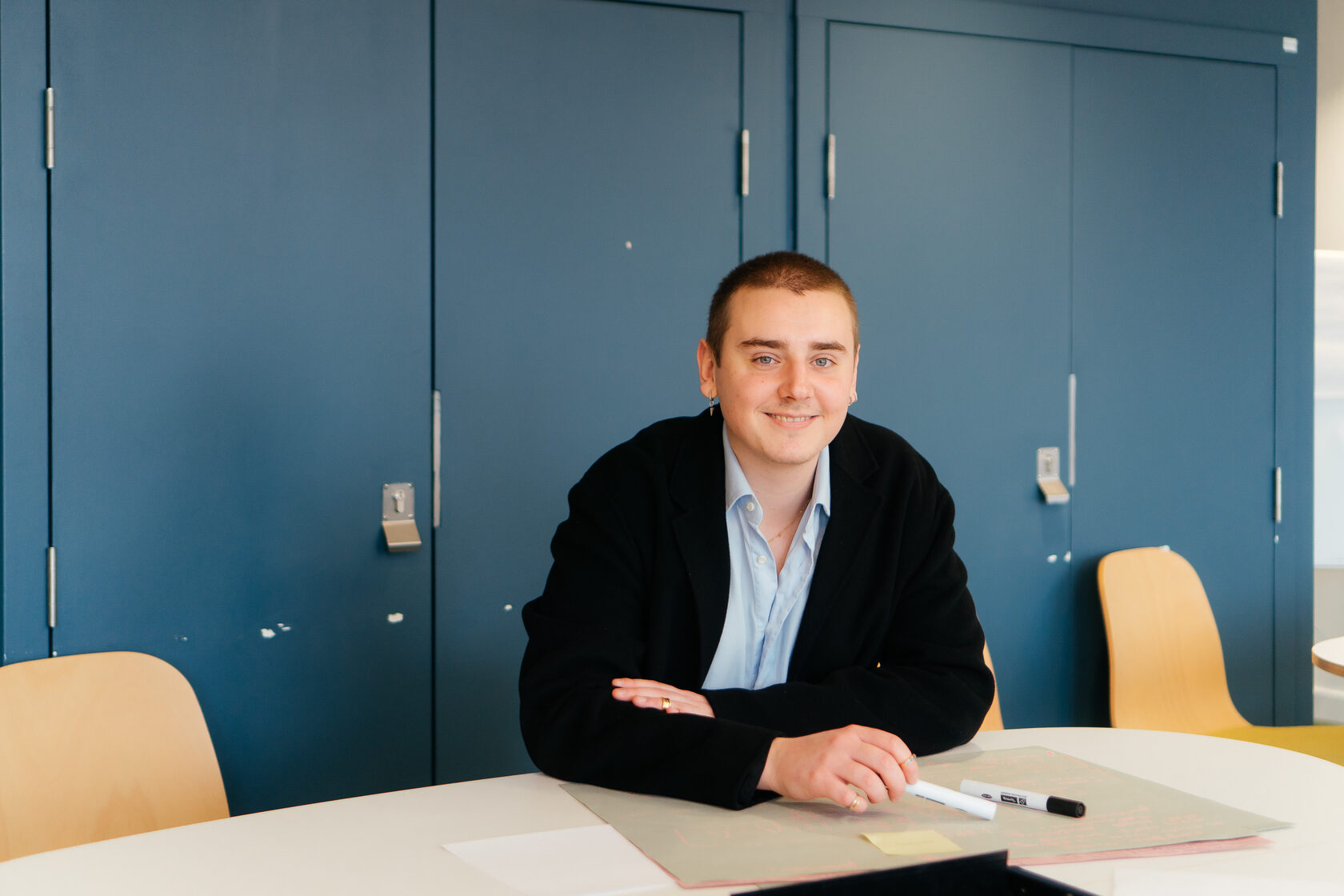
Challenge-led interdisciplinary curricula at the LIS converge knowledge from across the sciences, arts and design, technology, social sciences, and humanities - reflective of the evermore interconnected nature of challenges faced by our civilisation today - and apply that knowledge to real-world problems. At a time of growing complexity in the world, these founding principles of the LIS are increasingly valuable in ensuring the evolution of education in tandem with societal progress as they allow for easy integration of emerging disciplines into the learning environment.
During that Open Day, I consistently heard that students themselves get a chance to shape the original curricula - a practice I hope the LIS will continue going forward. The value for learning from the young and the diversity of thought that the School fosters manifest in a welcoming and thriving environment for individual conceptual differences that are often overlooked by traditional educational institutions.
During that Open Day, I consistently heard that students themselves get a chance to shape the original curricula - a practice I hope the LIS will continue going forward. The value for learning from the young and the diversity of thought that the School fosters manifest in a welcoming and thriving environment for individual conceptual differences that are often overlooked by traditional educational institutions.
“Today, education has to be about learning to thrive in a transforming world … We have been so preoccupied with asking the ‘how?’ of education, we have forgotten to ask the question of ‘what for’” - Valerie Hannon & Amelia Peterson, Head of Teaching and Learning at the LIS | Thrive, Cambridge University Press.

Challenge-led teaching is already shaping the founding cohort of LIS students into active voices in the community. For example, one of the School’s introduced problem electives - Living within Planetary Boundaries - has engaged students in finding innovative solutions for preserving regional ecosystems through researching at Spitalfields City Farm and exploring eco-art at Phytology, as well as designing, showcasing, and advocating for sustainable urban designs in various parts of London.
Sitting in the lobby of the School’s campus, I picked up a brochure from their coffee table that advertised local impactful businesses branded in unique LIS style. From the start, I was introduced to the School's open and collaborative spirit: they made an effort to go that extra mile to advertise somebody other than themselves at their very entrance! This collaborative strive expresses itself in many ways across the LIS community, from conferences through hackathons to hosting international student socials for London universities. Synergy is the aura of the LIS campus, situated wall-to-wall with the purpose-driven X+Why.
This adaptability of the learning environment to emerging societal challenges and the value that the School places on community highlight the new focus of education, aspects of which have been challenged significantly by the COVID-19 pandemic.
Sitting in the lobby of the School’s campus, I picked up a brochure from their coffee table that advertised local impactful businesses branded in unique LIS style. From the start, I was introduced to the School's open and collaborative spirit: they made an effort to go that extra mile to advertise somebody other than themselves at their very entrance! This collaborative strive expresses itself in many ways across the LIS community, from conferences through hackathons to hosting international student socials for London universities. Synergy is the aura of the LIS campus, situated wall-to-wall with the purpose-driven X+Why.
This adaptability of the learning environment to emerging societal challenges and the value that the School places on community highlight the new focus of education, aspects of which have been challenged significantly by the COVID-19 pandemic.

Direction of change
Despite its recent establishment, the LIS has accomplished significant milestones. It became the first university in the UK to acquire degree-granting powers since the 1960s, brought together a network of 200+ employers and organisations, and is now directly competing with the Russell Group.
Considering the broader implications of the sound argument for interdisciplinarity, a whole spectrum of changes across policy, industry, and public discourse will be needed to implement this model as a pillar of a contemporary education system. I spoke with Ed Fidoe, the founder of the LIS, to learn about the prospects of these systemic shifts.
Ed explained that as sector-specific changes occur within Higher Education, secondary schools will likewise follow suit. In my opinion, secondary school competition with traditional specialisation pathways is increasingly relevant as the number of students undecided about their future of academic expertise at GCSE level continues to grow and doubt among GenZ about the applicability of traditional specialised courses is rising. The LIS is offering them a resultative alternative.
Considering the broader implications of the sound argument for interdisciplinarity, a whole spectrum of changes across policy, industry, and public discourse will be needed to implement this model as a pillar of a contemporary education system. I spoke with Ed Fidoe, the founder of the LIS, to learn about the prospects of these systemic shifts.
Ed explained that as sector-specific changes occur within Higher Education, secondary schools will likewise follow suit. In my opinion, secondary school competition with traditional specialisation pathways is increasingly relevant as the number of students undecided about their future of academic expertise at GCSE level continues to grow and doubt among GenZ about the applicability of traditional specialised courses is rising. The LIS is offering them a resultative alternative.
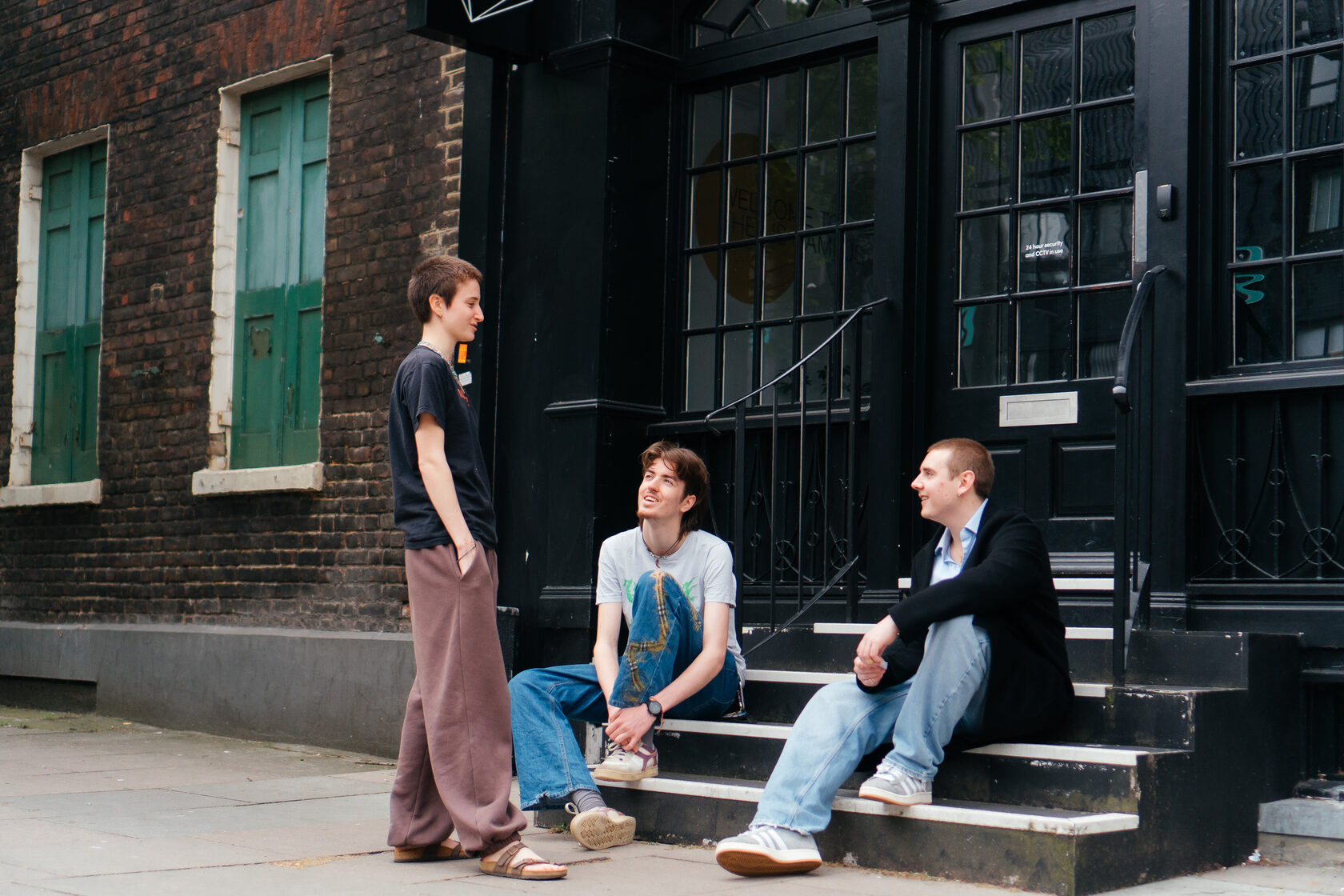
It is a coherent argument that raising experts in narrow fields like medicine will remain constantly applicable; however, Ed proposes that we need to rethink what we consider an “expert” to be. In his interview with Euronews, Ed emphasised that interdisciplinary executive approaches are best suited to the complexity of problems that industries face today.
Ed envisages this discourse making its way into corporate culture and encourages industry leaders to develop interactional expertise: a competence between deep expertise and generalist skills. The London Interdisciplinary School guides organisations towards this through their Professional Development programmes, in which leaders can currently learn the dynamics of high-performing teams, develop their approach to leadership with an interdisciplinary perspective and understand the power of Web3 communities in today's media-driven world.
Ed envisages this discourse making its way into corporate culture and encourages industry leaders to develop interactional expertise: a competence between deep expertise and generalist skills. The London Interdisciplinary School guides organisations towards this through their Professional Development programmes, in which leaders can currently learn the dynamics of high-performing teams, develop their approach to leadership with an interdisciplinary perspective and understand the power of Web3 communities in today's media-driven world.
How is the LIS implementing interdisciplinarity in its own organisational structure?
“Hunger for new perspectives drives diversity. At LIS, we are interdisciplinary fundamentally because we don’t have (and never will have) disciplinary departments. So, our faculty from a range of disciplines all collaborate, to create programmes. This is pretty unique, certainly in the UK.” - Ed Fidoe, Founder of LIS

Take-away
The London Interdisciplinary School is perfectly situated between the needs of the transforming labour market - to which it can flexibly adapt its educational context - and the teens more concerned about societal issues than any other generation before to amplify change across the education sector. In its community-focused organisational approach and energetic and collaborative stride, the School is making headway in realising its ambitions of renovating education to a format better suited to the contemporary state of the world.
Photos: Elena Zhiltcova



